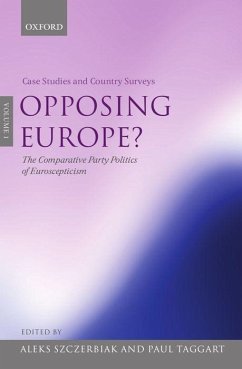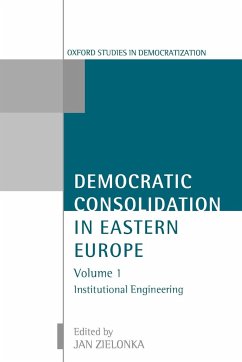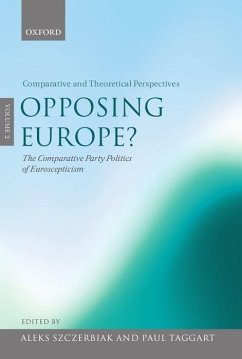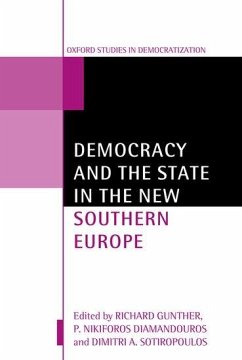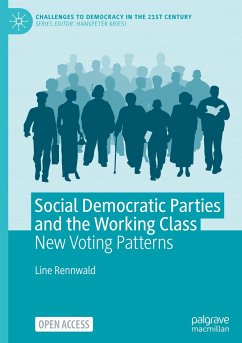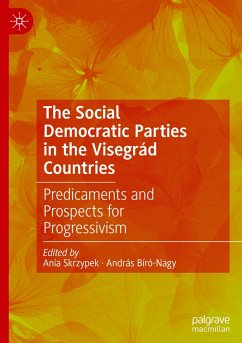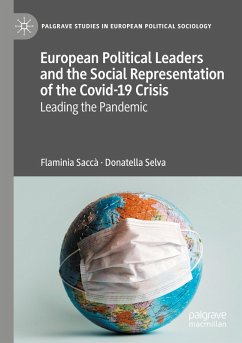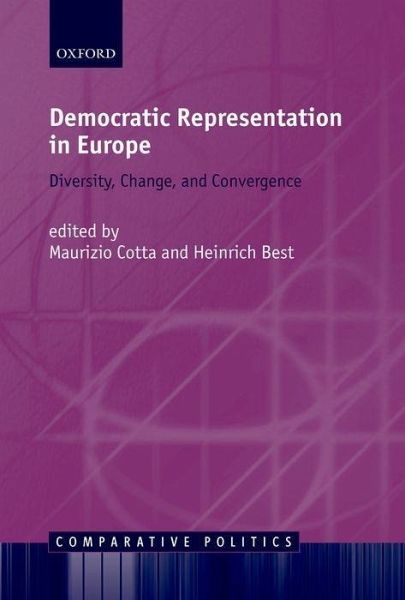
Heinrich Best / Maurizio Cotta (eds.)
Gebundenes Buch
Democratic Representation in Europe
Diversity, Change, and Convergence
Herausgeber: Cotta, Maurizio; Best, Heinrich
Versandkostenfrei!
Versandfertig in 1-2 Wochen

PAYBACK Punkte
114 °P sammeln!




This book contributes to a better understanding of relations between social and political change, and the importance of institutional factors in shaping the political elites of European democracies. It helps to substantiate theoretical debates in the social and political sciences on issues such as historical institutionalism and path dependency.
Maurizio Cotta is Professor of Political Science and Director of the Centre for the Study of Political Change at the University of Siena. He was Co-director of the Scientific Network, 'European Political Elites in Comparison: the long road to convergence' (EURELITE) funded by the European Science Foundation and is currently coordinator of the European 6th Framework programme Integrated Project "INTUNE Integrated and United: A quest for Citizenship in an ever closer Europe " He has written extensively on parliaments, executives, and on Italian politics. He has co-edited Il gigante dai piedi di argilla. La crisi del regime partitocratico in Italia (1996), Party and Goverment (1996), The Nature of Party Goverment (2000), Parliamentary representatives in Europe 1848-2000 (2000), L'Europa in Italia (2005). Heinrich Best is currently Professor of Sociology at the University of Jena. He is also Director of the multidisciplinary collaborative Research Centre, 'Societal Developments after the End of State Socialism: Discontinuity, Tradition and the Emergence of New Structures' funded by the German Science Foundation, and was Co-director of the Scientific Network, 'European Political Elites in Comparison: the long road to convergence' (EURELITE) funded by the European Science Foundation. Professor Best's publication list entails 27 books and 105 journal and book contributions as primary author and editor. His recent publications include "Parliamentary Representatives in Europe 1848-2000 " (OUP 2000); Elites in Transition: Elite Research in Central and Eastern Europe (1997); Functional Elites in the GDR: Theoretical controversies and empirical evidence (2003).
Produktdetails
- Verlag: OUP Oxford
- Seitenzahl: 552
- Erscheinungstermin: 8. November 2007
- Englisch
- Abmessung: 240mm x 161mm x 34mm
- Gewicht: 986g
- ISBN-13: 9780199234202
- ISBN-10: 0199234205
- Artikelnr.: 22934430
Herstellerkennzeichnung
Libri GmbH
Europaallee 1
36244 Bad Hersfeld
gpsr@libri.de
Für dieses Produkt wurde noch keine Bewertung abgegeben. Wir würden uns sehr freuen, wenn du die erste Bewertung schreibst!
Eine Bewertung schreiben
Eine Bewertung schreiben
Andere Kunden interessierten sich für


